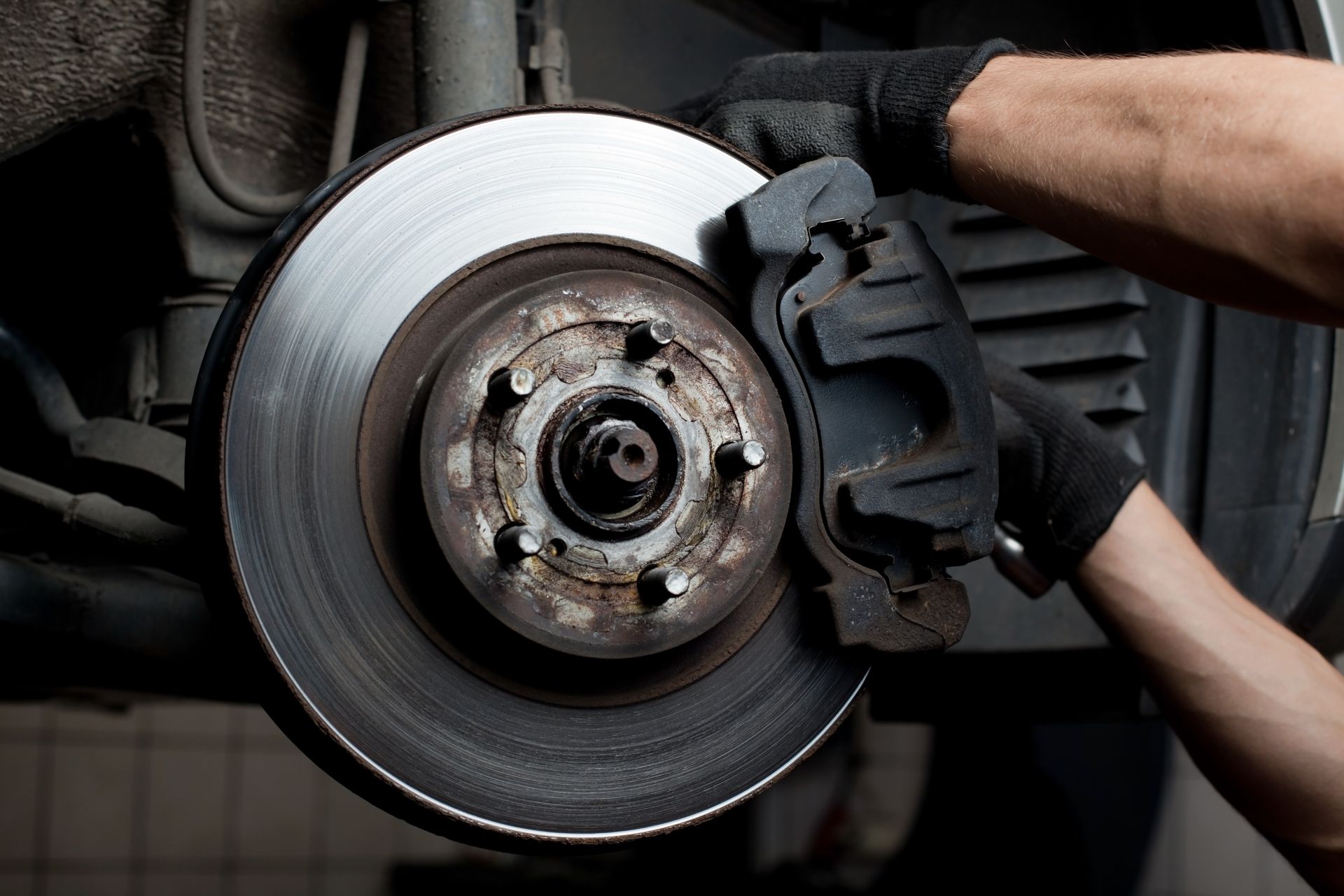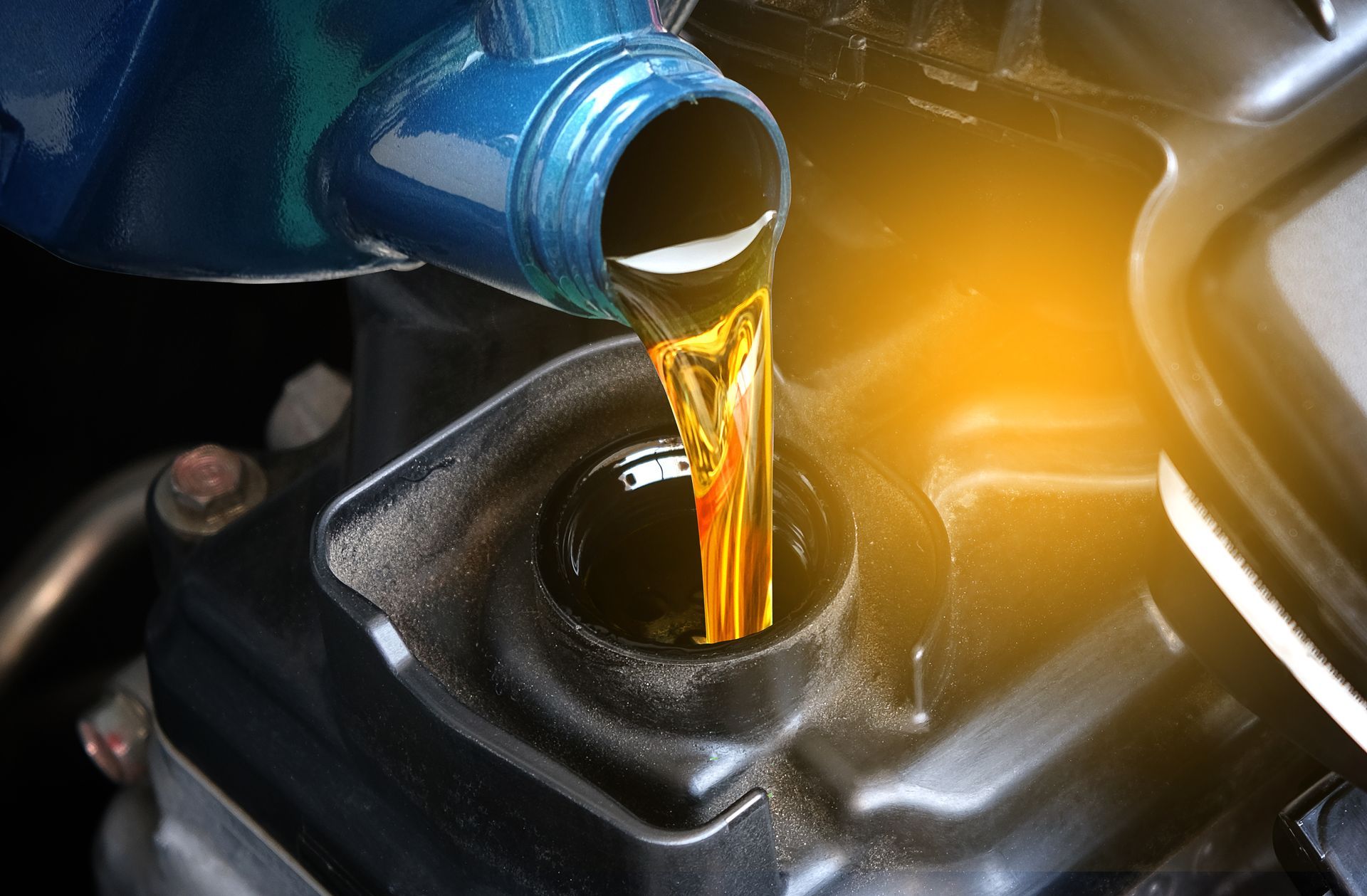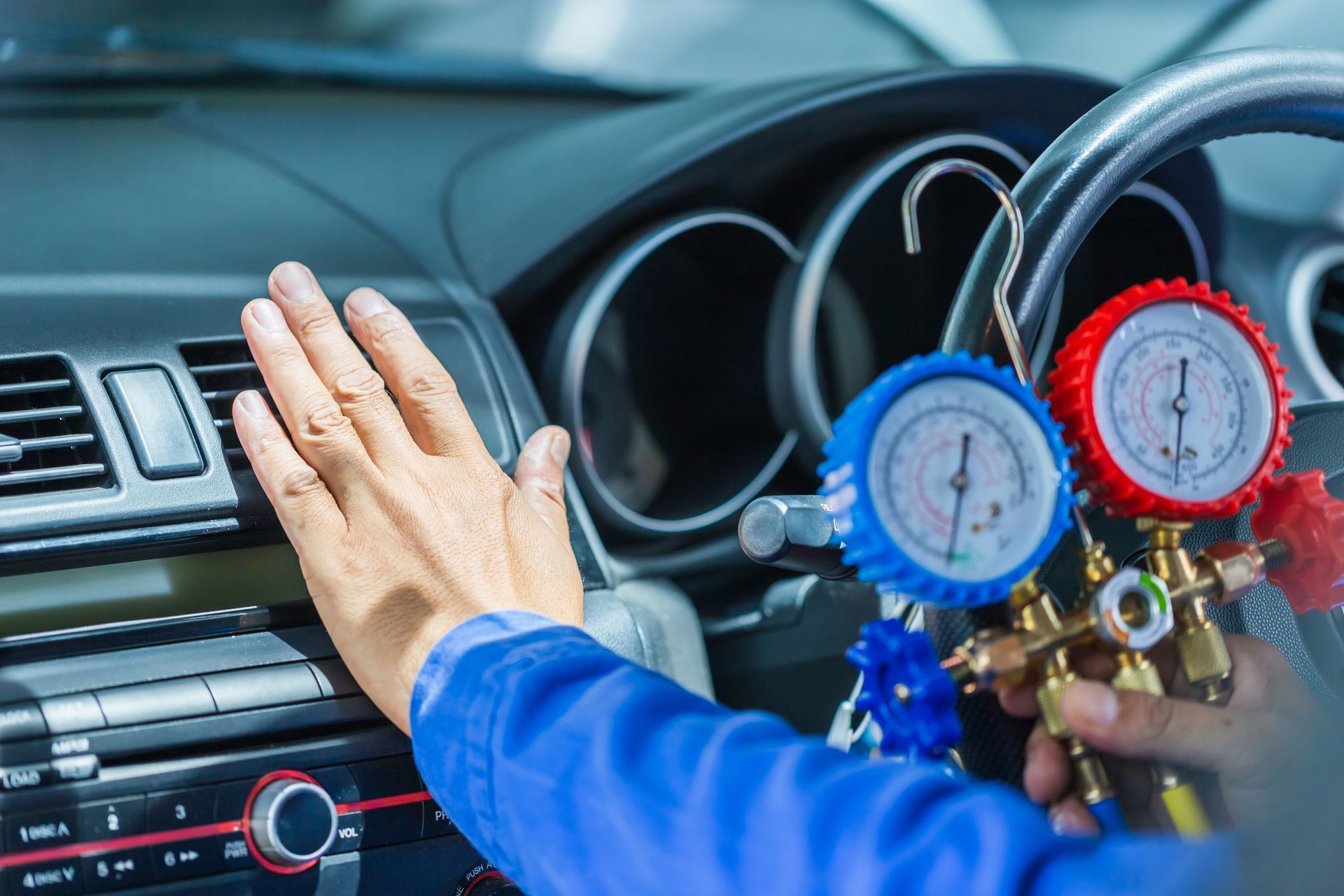Brake Warning Signs
How to Know When It's Time for Service

When it comes to vehicle safety, few systems are as vital as your brakes. At Miramar Auto Repair in San Diego, CA, we’ve seen firsthand how catching brake issues early can prevent costly repairs—and more importantly, dangerous situations. But how do you know when it’s time to get your brakes checked? In this guide, we’ll walk you through the most common warning signs that your brake system needs attention, explain why they occur, and help you understand when to schedule service before small problems become major risks.
Why Your Brakes Matter More Than You Think
Brakes aren’t just about stopping your vehicle—they’re about control, safety, and response. Whether you’re driving on city streets, in stop-and-go traffic on the 805, or heading out for a weekend trip up the coast, your ability to stop quickly and safely affects everyone on the road.
At Miramar Auto Repair, we specialize in diagnosing and repairing brake systems for all makes and models, with a focus on Japanese vehicles. Our ASE-certified technicians use advanced diagnostic tools to identify wear and performance issues with precision—ensuring your car’s stopping power stays dependable at every mile.
1. Squeaking or Squealing Sounds
One of the most common—and often ignored—brake warning signs is a high-pitched squeal when you apply the brakes. This noise is usually caused by the brake pad wear indicator, a small metal piece built to alert drivers when pads are nearing the end of their lifespan.
Why it matters:
Ignoring this sound can lead to metal-on-metal contact, damaging your rotors and increasing repair costs.
What to do:
If you hear consistent squealing, it’s time to book a brake inspection. At Miramar Auto Repair, we’ll measure pad thickness and check for rotor wear before it becomes a more expensive issue.
2. Grinding Noises When Braking
A grinding sound often means your brake pads are completely worn through, and the metal backing plates are pressing directly against your rotors.
Why it matters:
This reduces your ability to stop and causes severe rotor damage, often requiring replacement instead of resurfacing.
What to do:
Stop driving and schedule an immediate brake service. Grinding brakes are not just a mechanical issue—they’re a serious safety risk.
3. Vibrations or Pulsating Pedal
If your brake pedal vibrates or pulses when you stop, it could mean your rotors are warped or uneven. This is often caused by high-speed braking, towing, or long-term wear.
Why it matters:
Warped rotors reduce braking efficiency and increase stopping distance, especially at higher speeds.
What to do:
Have your rotors inspected. Miramar Auto Repair can determine whether they can be machined or need replacement, and we’ll recommend the most cost-effective, safe solution.
4. Soft or Spongy Brake Pedal
If your brake pedal sinks too far or feels soft under pressure, you may have air in your brake lines or a potential brake fluid leak.
Why it matters:
This compromises your hydraulic pressure—meaning your brakes won’t respond as quickly or powerfully when needed.
What to do:
We’ll check for fluid levels, leaks, and master cylinder function. Brake line bleeding or replacement may be necessary to restore full braking power.
5. Dashboard Brake Light Is On
The brake light on your dash may indicate low brake fluid, worn brake pads, or a more serious system fault.
Why it matters:
While some lights are triggered by simple conditions (like a low fluid level), others could be early warnings of dangerous failures.
What to do:
Let our team run a full diagnostic to interpret the trouble code. We’ll inspect your entire brake system and let you know exactly what’s going on.
6. Pulling to One Side While Braking
If your car veers left or right when braking, it could mean you have a stuck caliper, uneven pad wear, or even an issue with your suspension.
Why it matters:
Pulling puts uneven stress on your brakes and tires—and compromises your ability to stop in a straight line.
What to do:
We’ll inspect your calipers, pads, and suspension to pinpoint the problem and restore balanced braking performance.
How We Help Drivers in San Diego Stay Safe
At Miramar Auto Repair, we know how important trust, transparency, and fast turnaround times are when it comes to brake repairs. Most of our services are completed the same day, and we always explain your options clearly before doing any work. As a NAPA AutoCare Center with ASE-certified technicians, we also back every brake service with a 36-month/36,000-mile nationwide warranty.
We work with all makes and models, but if you drive a Japanese vehicle like a Honda, Toyota, or Subaru, you’ll appreciate the deep expertise we bring to every repair. Our shop is built on honest diagnostics, no-pressure recommendations, and service that’s done right the first time.
When to Schedule a Brake Inspection
If you’ve noticed any of the signs listed above—or if it’s simply been a while since your last brake check—it’s best to be proactive. Preventive maintenance can extend the life of your brake components, improve your fuel economy, and give you peace of mind.
Whether you're commuting through downtown San Diego or taking weekend drives up the coast, reliable brakes aren’t optional—they’re essential.
Final Thoughts
Don’t wait for your brakes to fail before taking action. At Miramar Auto Repair in San Diego, CA, we make it easy to get your brakes checked, repaired, and back in top shape—all with honesty, skill, and same-day convenience. If something doesn’t feel right with your brakes, trust your instincts—and trust our team to help you stay safe.








